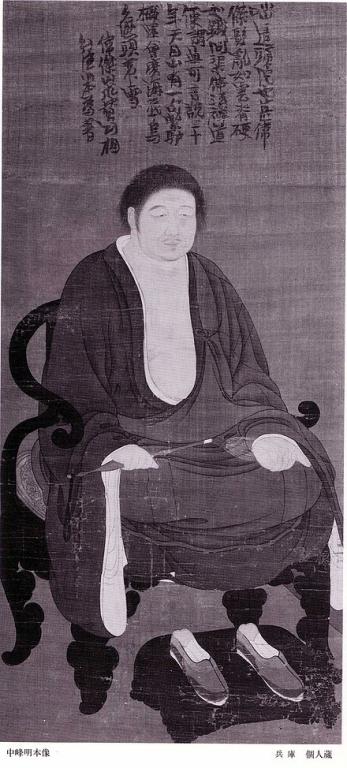A Definition of the Koan
Translated by Ruth Fuller Sasaki
The koans [kungans] may be compared to the case records of the public law court. Whether or not the ruler succeeds in bringing order to his realm depends in essence upon the existence of law. Kung (ko), or “public,” is the single track followed by all sages and worthy men alike, the highest principle which serves as a road for the whole world. An (an), or “records,” are the orthodox writings that record what the sages and worthy people regard as principles.
There have never been rulers who did not have public law courts, and there have never been public law courts that did not have case records that are to be used as precedents of laws in order to stamp out injustice in the world. When these public case records (koans) are used, then principles and laws will come into effect; when these come into effect, the world will become upright; when the world is upright, the Kingly Way will be well ordered.
Now, when we use the word “koan” to refer to the teachings of the buddhas and ancestors, we mean the same thing. The koans do not represent the private opinion of a single person, but rather the hundreds and thousands of bodhisattvas of the three realms and the ten directions.This principle accords with the spiritual source, tallies with the mysterious meaning, destroys birth-and-death, and transcends the passions. It cannot be understood by logic; it cannot be transmitted in words; it cannot be explained in writing; it cannot be measured by reason.It is like the poisoned drum that kills all who hear it, or like a great fire that consumes all who come near it.What is called the “special transmission of the Vulture Peak” was the transmission of this; what is called the “direct pointing of Bodhidharma at Shao-lin-ssu” was pointing at this.
From the time long ago when the lotus flower was held up on Vulture Peak until today, how can there have been only seventeen hundred koans? Yet the koans are something that can be used only by people with enlightened minds who wish to prove their understanding. They are certainly not intended to be used merely to increase one’s lore and provide topics for idle discussion.
The so-called venerable masters of Zen are the chief officials of the public law courts of the monastic community, as it were, and their words on the transmission of Zen and their collections of sayings are the case records of points that have been vigorously advocated. Occasionally men of former times, in the intervals when they were not teaching, in spare moments when their doors were closed, would take up these case records and arrange them, give their judgment on them, compose verses of praise on them, and write their own answers to them.
Surely they did not do this just to show off their erudition and contradict the worthy men of old. Rather, they did it because they could not bear to think that the Great Dharma might become corrupt. Therefore they stooped to using expedients in order to open up the Wisdom Eye of the people of later generations, hoping thereby to make it possible for them to attain the understanding of the Great Dharma for themselves in the same way. That is all.
The word kung (ko), or “public,” means that the koans put a stop to private understanding; the word an (an), or “case records,” means that they are guaranteed to accord with the buddhas and ancestors. When these koans are understood and accepted, then there will be an end to feeling and discrimination; when there is an end to feeling and discrimination, birth-and-death will become empty; when birth-and-death becomes empty, the Buddha-way will be ordered. What do I mean by according with the buddhas and ancestors? The buddhas and ancestors have been greatly sorrowed to see that sentient beings bind themselves to the realm of birth-and-death and sensual delusion, so that, through the countless kalpas of the past down to the present, none have been able to free themselves. Therefore they displayed words in the midst of wordlessness and handed down forms in the midst of formlessness. But once the bonds of delusion have been loosed, how can there be any words and forms left to discuss?
If an ordinary man has some matter that he is not able to settle by himself, he will go to the public law court to seek a decision, and there the officials will look up the case records and, on the basis of them, settle the matter for him. In the same way, if a student has that in his understanding of enlightenment that he cannot settle for himself, he will ask his teacher about it, and the teacher, on the basis of the koans, will settle it for him.
The koan is a torch of wisdom that lights up the darkness of feeling and discrimination, a golden scraper that cuts away the film clouding the eye, a sharp ax that severs the root of birth-and-death, a divine mirror that reflects the original face of both the sacred and the secular.Through it, the intention of the patriarchs is made abundantly clear, the Buddha mind is laid open and revealed. For the essentials of complete transcendence, final emancipation, total penetration, and identical attainment, nothing can surpass the koan.













